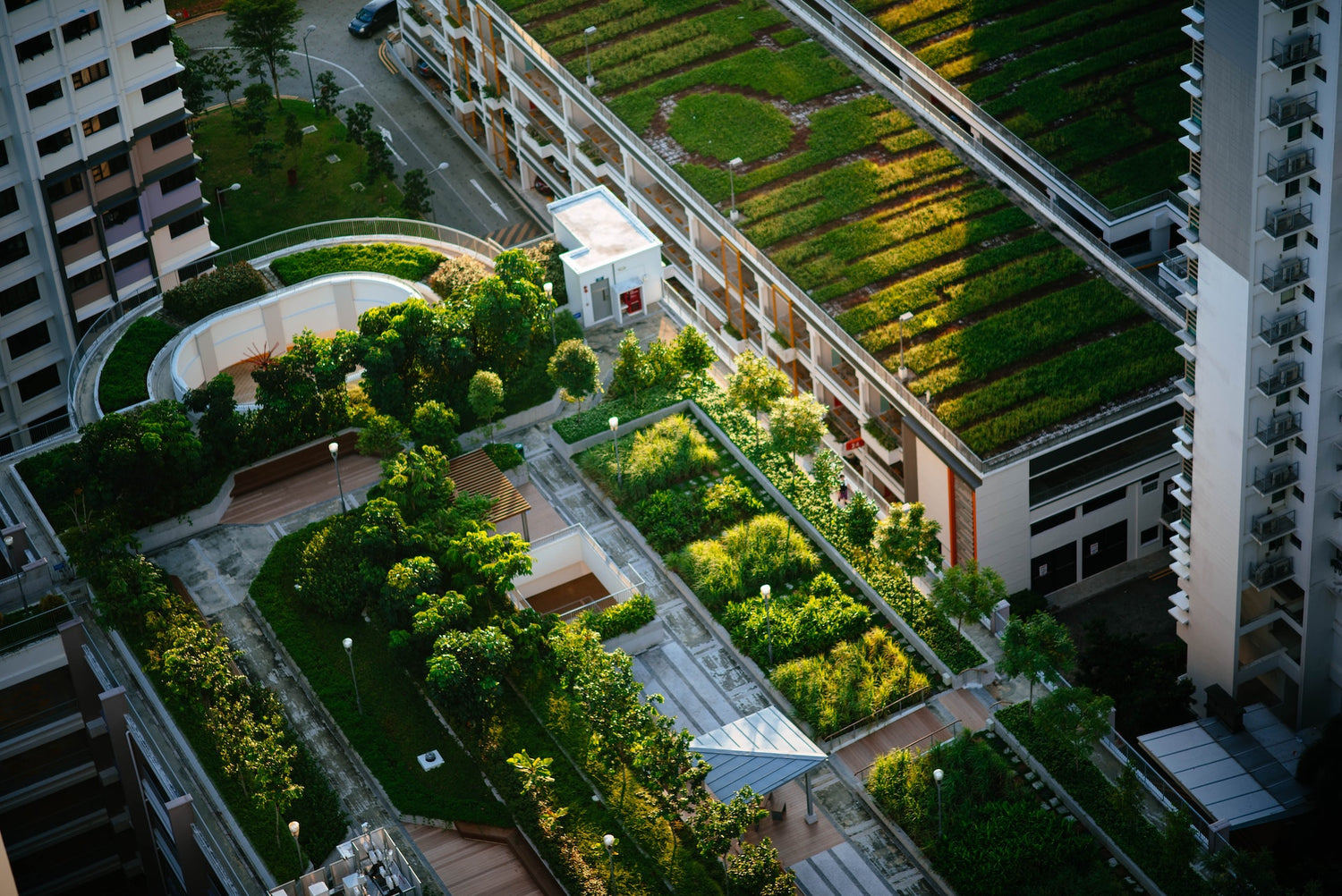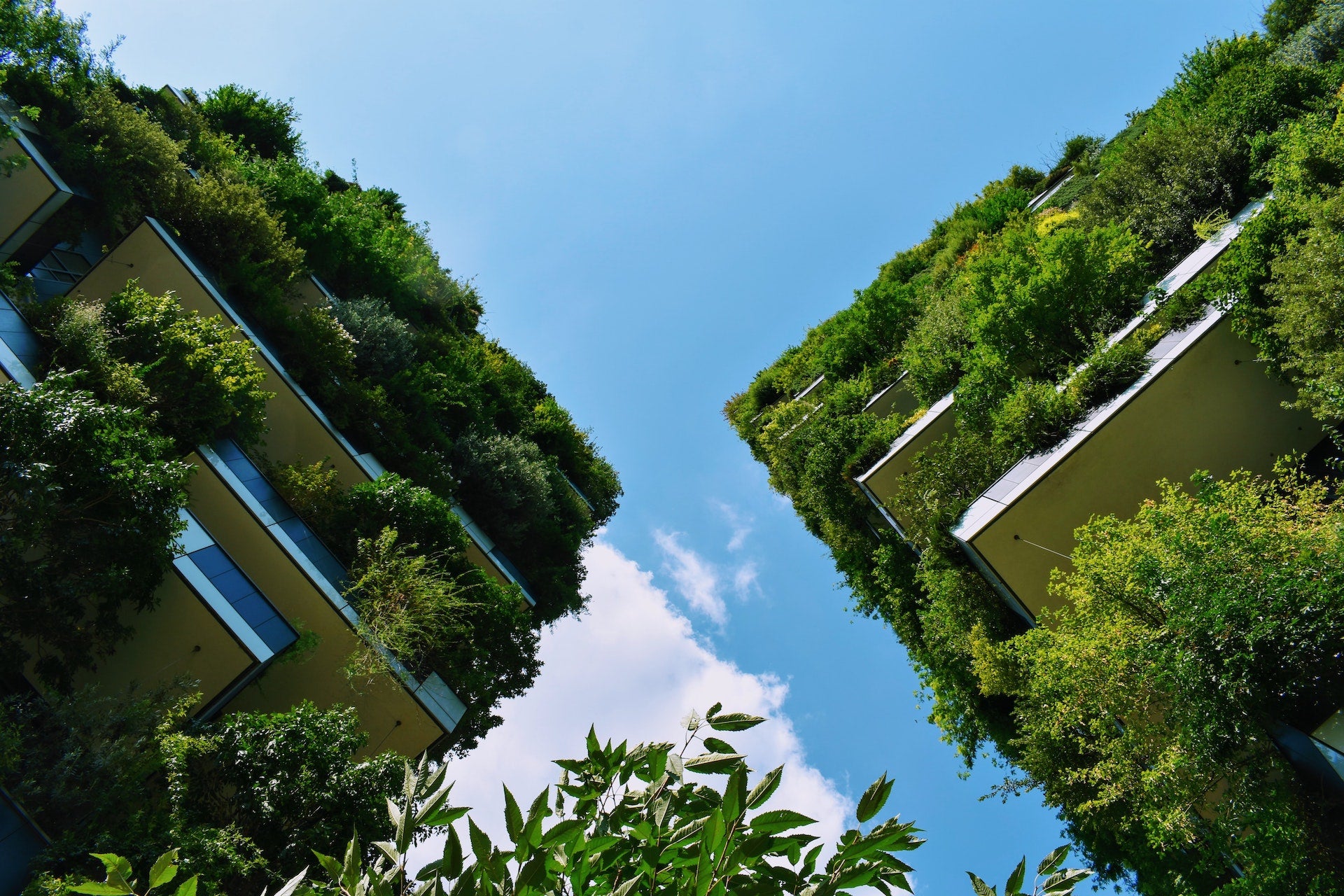"Value created by sustainable communities"
Now that the COVID-19 pandemic is bringing about a major transformation in the way people live and work, the nature of real estate, and the nature of cities, urban development based on sustainability can be a great opportunity for regional cities and communities to create communities with attractive value, as well as a futuristic urban model.
As new concepts such as workation, decentralization of workplaces, and working from home have rapidly spread in the wake of the COVID-19 pandemic, the element of "empathy" is beginning to show the potential to replace the traditional core element of "convenience" when selecting a real estate location.
While housing, offices, and commercial facilities in metropolitan areas are being asked to adapt to these changes, regional cities and resorts are also being asked to adapt to these changes.
This change presents a major opportunity for growth.

Sustainability trends are key to increasing the value of towns and cities
The trends below also present huge opportunities for local cities and resorts to realize next-generation sustainable models and increase their value globally.
・How people live, work, and travel <br>As the concept of daily commuting fades, what talented people value in the coming era is shifting from "convenient urban centers" to "places with a lifestyle they can relate to." Talented global talent with a high level of education and specialized knowledge tend to have a strong interest in sustainability in areas such as the environment, nature, food, and community. In terms of travel, too, the demand for "things and people you can relate to" is growing globally year by year, and a sustainable community that you can get involved in while traveling is a strong motivation for returning to that place again and again.
・Company Structure <br>Companies' location selection strategies are based on securing and retaining outstanding human resources. There is a growing tendency, especially among the millennial generation, to look for "empathy" in the company's initiatives from outstanding human resources. For both global companies and small and medium-sized enterprises, forming a sustainable community is the basis for maintaining a competitive edge in terms of acquiring and retaining outstanding human resources.
・Real estate (community) value
According to Bentall GreenOak, a global leader in ESG real estate investment, real estate (offices) with high levels of ESG measures can enjoy economic benefits such as higher rents, tenant retention rates, and lower leasing costs, and have been confirmed to be 8% to 10% higher on an annual revenue basis than buildings of similar size with low levels of ESG measures. This also translates into an 8% to 10% increase in real estate value, suggesting that real estate users and tenants have a higher demand for and are willing to pay higher rents for sustainable real estate.
Climate change The impact of global climate change on our lives may be more immediate than people thought a few years ago. With natural disasters, regional changes due to climate change, and rising sea levels affecting coastal areas, it is not difficult to imagine that the places people choose to live and work in the future will shift to more sustainable places.
Health Environment <br>During the COVID-19 pandemic, the central areas of large cities such as central Tokyo have become the areas most avoided in terms of the health environment. Although the central areas of large cities have excellent medical services, people's new lifestyles may require different models in terms of lifestyle-related prevention of infectious diseases and mental care.

Sustainable communities that offer options for SDG/ESG initiatives in areas such as food, clothing, shelter, transportation, tourism, buildings, consumption, education, and community will create value that attracts people and companies globally, transcending national, religious, and racial boundaries.
We believe that real estate is a key factor in creating sustainable cities. The introduction of ESG into the real estate sector, which accounts for approximately 40% of global greenhouse gas emissions, is not limited to simply improving energy efficiency and reducing greenhouse gas emissions.
Advanced and superior real estate asset management that incorporates SDGs/ESG will increase the value of real estate, communities, towns and cities while adapting to changes and trends in the global environment, such as urbanization, demographic change, climate change, technology and working patterns.

By providing real estate owners and managers with the right tools, the real estate ESG tech service "EaSyGo" goes beyond the boundaries of individual properties and connects them to the "lines" that connect other dots, encouraging behavioral change that will lead to a shared commitment to sustainability for people in the real estate industry.
To encourage people to actively change their behavior towards sustainability, EaSyGo provides real estate users with the elements and options necessary for sustainability initiatives, such as motivation, means, evaluation, sharing and empathy .
We spread sustainability from individuals to communities, from communities to towns and towns to cities.





